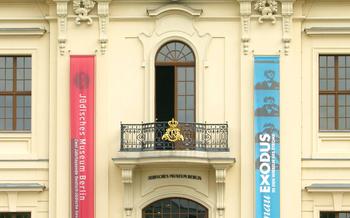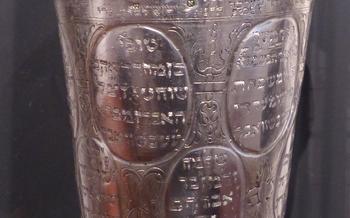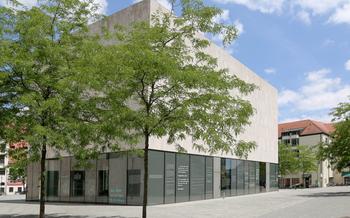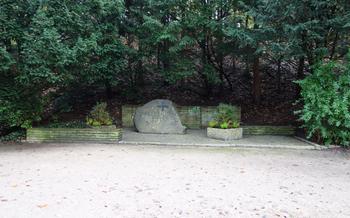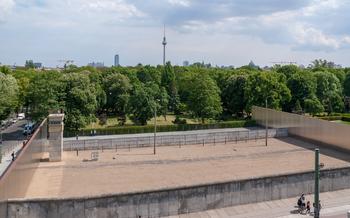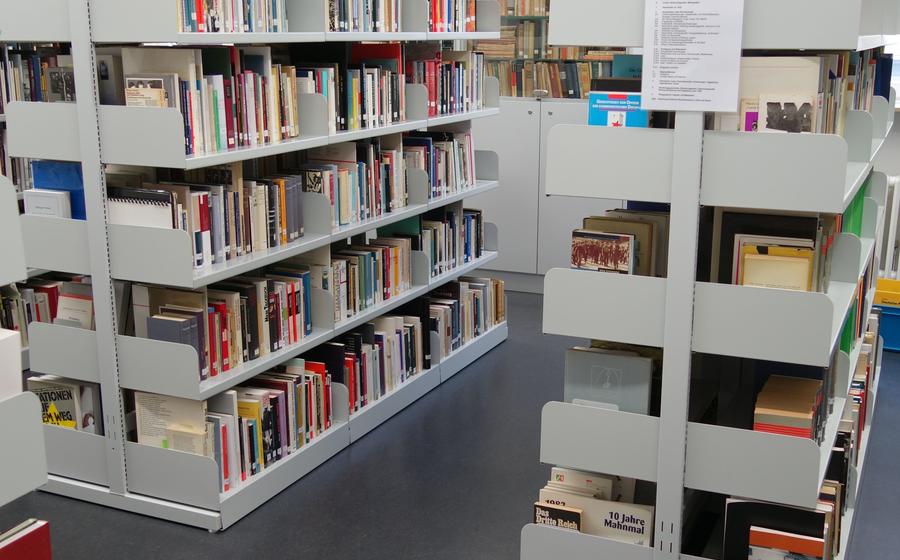
Mahn und Gedenkstätte
- The Mahn und Gedenkstätte: A Place of Remembrance and Reflection
- Location and Accessibility
- Exhibitions and Memorial Spaces
- Document Center and Archives
- Educational Programs and Workshops
- Guided Tours and Audio Guides
- Memorial Events and Commemorations
- Research and Documentation
- Volunteer Opportunities
- Accessibility for Visitors with Disabilities
- Respectful Behavior and Conduct
- Photography and Videography
- Souvenirs and Merchandise
- Insider Tip: Hidden Details and Personal Stories
The Mahn und Gedenkstätte: A Place of Remembrance and Reflection
In the heart of Düsseldorf, Germany, stands the Mahn und Gedenkstätte, a poignant memorial dedicated to preserving the memory of the victims of Nazi persecution during the Holocaust. This solemn site serves as a place of remembrance, reflection, and education, inviting visitors to confront the atrocities of the past and honor the lives lost.
The history of the site dates back to the Nazi era when it was used as a collection point for Jewish citizens before their deportation to concentration and extermination camps. Today, the Mahn und Gedenkstätte stands as a testament to the resilience of the human spirit and the importance of remembrance. Its mission is to educate future generations about the horrors of the Holocaust, promote tolerance and understanding, and combat anti-Semitism and all forms of discrimination.
The memorial's design is both striking and symbolic. A series of concrete pillars, resembling tombstones, rise from the ground, representing the countless lives that were extinguished during the Holocaust. The names of over 5,000 victims, meticulously inscribed on the pillars, serve as a powerful reminder of the individuals whose lives were cut short by hatred and intolerance.
The Mahn und Gedenkstätte is not just a place of remembrance; it is also a center for education and research. Its permanent exhibition provides a comprehensive overview of the history of the Holocaust, from the rise of Nazism to the liberation of the concentration camps. Temporary exhibitions and special events delve deeper into specific aspects of the Holocaust, shedding light on the lives of victims, survivors, and resistance fighters.
Through its educational programs, workshops, and seminars, the Mahn und Gedenkstätte strives to foster a culture of remembrance and understanding among young people. School visits, guided tours, and interactive displays help students to grasp the complexities of the Holocaust and its relevance to contemporary society.
Location and Accessibility
The Mahn und Gedenkstätte Düsseldorf is conveniently located in the heart of the city, making it easily accessible for visitors. It is situated at Cecilienallee 10, 40474 Düsseldorf, Germany. To reach the memorial, visitors can take advantage of the city's extensive public transportation system. The nearest underground station is Heinrich-Heine-Allee, which is just a short walk away. Several bus lines also stop nearby, providing easy access from various parts of Düsseldorf.
For those arriving by car, there is limited street parking available in the surrounding area. However, it is recommended to use public transportation or take advantage of the nearby parking garages to avoid any inconvenience. The memorial is fully accessible for visitors with disabilities. Wheelchair ramps and elevators are available throughout the site, ensuring that everyone can comfortably explore the memorial.
Exhibitions and Memorial Spaces
The Mahn und Gedenkstätte Düsseldorf offers a powerful and moving experience through its permanent exhibition and various memorial spaces. The permanent exhibition, entitled "History of Persecution and Resistance in National Socialism," provides a comprehensive overview of the Nazi regime's systematic persecution of Jews, political dissidents, and other marginalized groups. Visitors are guided through a series of thematic sections that explore the rise of Nazism, the implementation of anti-Semitic policies, the establishment of concentration camps, and the resistance movements that emerged in response to the regime's atrocities.
In addition to the permanent exhibition, the Mahn und Gedenkstätte also hosts temporary exhibitions that focus on specific aspects of the Holocaust and its aftermath. These exhibitions often feature personal stories, historical documents, and artworks that shed light on the experiences of victims and survivors. The memorial also includes several memorial spaces that provide visitors with opportunities for quiet reflection and remembrance. These spaces include a memorial room dedicated to the victims of the Holocaust, a memorial garden, and a wall of remembrance inscribed with the names of those who were murdered.
Document Center and Archives
The Mahn und Gedenkstätte Düsseldorf houses a comprehensive document center and archive that serves as a valuable resource for scholars, researchers, and the interested public. This center provides access to a vast collection of historical documents, photographs, artifacts, and testimonies related to the history of the site and the victims of Nazi persecution.
Researchers and scholars can access these resources to conduct in-depth studies on the Holocaust and its impact on Düsseldorf and the surrounding region. The center's staff is dedicated to facilitating research and providing assistance to scholars working on various aspects of Holocaust history.
Educational programs and workshops are also offered at the document center, enabling students, educators, and community members to engage with the historical materials and gain a deeper understanding of the Holocaust. These programs include guided tours, workshops, and seminars that explore various themes related to the Holocaust and its aftermath.
The document center also plays a crucial role in preserving and digitizing historical materials, ensuring their accessibility for future generations. By digitizing documents and making them available online, the center contributes to the preservation of Holocaust history and facilitates research and education on a global scale.
Educational Programs and Workshops
The Mahn und Gedenkstätte places great emphasis on education and outreach, offering a range of educational programs and workshops for visitors of all ages and backgrounds. These programs aim to promote understanding of the Holocaust, its historical context, and its ongoing relevance to contemporary society.
School visits are a key component of the educational mission, with tailored programs designed for students of different grade levels. Guided tours, workshops, and interactive activities help students to engage with the history of the site and the experiences of the victims. Resources for teachers and educators are also provided, including lesson plans, historical documents, and multimedia materials.
Workshops and seminars on Holocaust history are offered throughout the year, open to the general public as well as educators and professionals. These workshops explore various aspects of the Holocaust, including its causes, consequences, and the experiences of victims and survivors. Experts in the field of Holocaust studies lead these sessions, providing participants with in-depth knowledge and insights.
Training programs for educators and multipliers are also conducted, equipping teachers, museum staff, and other professionals with the knowledge and skills to effectively teach about the Holocaust. These programs focus on developing pedagogical approaches, using primary sources, and facilitating dialogue and reflection among students.
Community outreach and dialogue initiatives are an integral part of the educational mission. The Mahn und Gedenkstätte collaborates with local communities, organizations, and individuals to raise awareness about the Holocaust and promote tolerance and understanding. Public lectures, film screenings, and discussion events are organized to engage the broader community in conversations about the past and its relevance to the present.
Guided Tours and Audio Guides
The Mahn und Gedenkstätte offers guided tours in various languages, providing visitors with a deeper understanding of the memorial's history and significance. The tours are led by experienced guides who share insights into the events that transpired on the site and the lives of the victims.
The guided tours typically cover the history of the Nazi regime, the persecution of Jews and other minority groups, and the liberation of the camp. Visitors are taken through the different sections of the memorial, including the barracks, the crematorium, and the memorial spaces, while learning about the atrocities committed during the Holocaust.
The cost of guided tours varies depending on the language and group size. Advance booking is recommended to secure a spot, especially during peak tourist seasons. Additionally, audio guides are available in multiple languages for those who prefer a self-guided tour at their own pace.
Memorial Events and Commemorations
The Mahn und Gedenkstätte hosts a variety of memorial events and commemorations throughout the year, serving as a poignant reminder of the horrors of the Holocaust and honoring the victims who suffered during this dark chapter in history.
Annual Remembrance Ceremonies: Each year, the memorial holds solemn remembrance ceremonies to mark significant dates related to the Holocaust. These ceremonies often feature speeches by survivors, readings of victims' names, and the lighting of memorial candles.
Special Exhibitions and Programs: During Holocaust Remembrance Day (Holocaust-Gedenktag), the memorial presents special exhibitions and programs that delve deeper into the history of the Holocaust and its impact on individuals and communities. These events provide an opportunity for visitors to gain a deeper understanding of the atrocities committed and to reflect on the lessons of the past.
Opportunities for Visitor Participation: Visitors to the memorial are encouraged to participate in memorial activities and contribute to the remembrance of the victims. This can include laying flowers at the memorial site, writing messages of remembrance in the guest book, or attending workshops and lectures that explore the history and legacy of the Holocaust.
Commemoration of Individual Victims: The memorial also provides a platform for commemorating individual victims of Nazi persecution. Visitors can learn about the lives of these individuals, their experiences during the Holocaust, and their contributions to society before they were tragically taken. By sharing their stories, the memorial ensures that their memory lives on.
Research and Documentation
The Mahn und Gedenkstätte Düsseldorf is not only a memorial site but also a center for research and documentation on the history of the Nazi persecution and the Holocaust. Ongoing research projects delve into the history of the site, the individual victims, and the broader context of the Nazi regime. The memorial collaborates with other institutions and organizations, including universities, museums, and research centers, to advance knowledge and understanding of this dark chapter in history. The results of these research efforts are disseminated through publications, academic conferences, and educational programs. The memorial's contribution to the field of Holocaust studies helps to ensure that the memory of the victims is preserved and that future generations can learn from the atrocities of the past.
Volunteer Opportunities
The Mahn und Gedenkstätte offers a range of volunteer opportunities for individuals interested in contributing to the preservation of Holocaust memory and education. Volunteers play a crucial role in supporting the memorial's mission by engaging with visitors, assisting with research and archival work, and participating in educational programs and events.
Educational Programs and Events: Volunteers can assist with educational workshops, seminars, and events for students, teachers, and the general public. They may help with setting up, facilitating discussions, and providing historical context.
Research and Archival Work: Volunteers with a research background can assist with the documentation, cataloging, and digitization of historical materials related to the site and the victims. They may also contribute to research projects and publications.
Guiding Visitors: Volunteers can become trained guides and lead tours for visitors through the memorial's exhibitions and memorial spaces. They share historical information, answer questions, and facilitate meaningful discussions.
Supporting the Mission: Volunteers can support the memorial's mission in various ways, such as assisting with fundraising events, outreach activities, and administrative tasks. They may also help with the maintenance and upkeep of the memorial's grounds and facilities.
Volunteering at the Mahn und Gedenkstätte is a rewarding experience that allows individuals to contribute to the preservation of Holocaust memory, promote education, and honor the victims. It is an opportunity to make a positive impact on society and gain valuable insights into the history of the site and the Holocaust.
Accessibility for Visitors with Disabilities
The Mahn und Gedenkstätte is committed to ensuring that all visitors, regardless of their abilities, can access and experience the memorial. Wheelchair users and visitors with limited mobility will find ramps and elevators throughout the site, making all exhibitions and memorial spaces fully accessible. The memorial also provides sign language interpretation and audio descriptions for guided tours upon request. Braille signage and tactile exhibits are available to enhance the experience for visually impaired visitors. Designated parking spaces are reserved for visitors with disabilities, and assistance is offered to those who need it. The staff at the Mahn und Gedenkstätte is always ready to assist visitors with disabilities, ensuring that everyone has an inclusive and meaningful experience.
Respectful Behavior and Conduct
The Mahn und Gedenkstätte is a place of remembrance and reflection, and visitors are expected to behave in a respectful manner. This includes maintaining silence and avoiding disruptive or disrespectful actions. Appropriate dress is also important, as visitors should dress in a way that is appropriate for the somber nature of the memorial. Visitors should be mindful of their actions and words, and should avoid any behavior that could be interpreted as disrespectful or insensitive. The memorial is a place for quiet contemplation and remembrance, and visitors should strive to create an atmosphere that is conducive to this.
Photography and Videography
Visitors are welcome to capture the essence of the Mahn und Gedenkstätte through photography and videography. However, certain guidelines must be followed to ensure respect and preserve the integrity of the memorial space. Photography and videography are permitted in designated areas, excluding the Hall of Names and certain sensitive spaces. Flash photography and the use of tripods are prohibited to minimize disturbances to other visitors and protect the artifacts on display. Copyright and usage rights of captured images belong to the individual photographer or videographer, but any commercial use or publication requires prior permission from the memorial administration. It is essential to respect the privacy of other visitors and refrain from capturing images that may be intrusive or disrespectful.
Souvenirs and Merchandise
The Mahn und Gedenkstätte offers a selection of books, postcards, and other souvenirs that visitors can purchase to support the memorial's mission and remember their visit. The proceeds from these sales contribute to the ongoing work of preserving and commemorating the site and the history it represents.
The memorial's shop offers a carefully curated collection of items that are both meaningful and respectful of the site's history. Visitors can find books on the history of the Nazi persecution and the Holocaust, as well as personal accounts from survivors and their families. Postcards and other souvenirs feature images of the memorial, its architecture, and its surroundings, providing a tangible reminder of the visit.
By purchasing a souvenir from the Mahn und Gedenkstätte, visitors not only take home a memento of their visit but also contribute to the preservation of this important historical site. The memorial's merchandise is ethically sourced and produced, ensuring that the proceeds are used to support the memorial's mission and educational programs.
Visitors can also purchase items from the memorial's online shop, allowing them to support the memorial's work from anywhere in the world. The online shop offers a wide range of items, including books, DVDs, and educational materials, as well as a selection of souvenirs.
Whether purchased at the memorial itself or through the online shop, the souvenirs from the Mahn und Gedenkstätte serve as a reminder of the importance of remembering the victims of the Nazi persecution and the Holocaust. They are a tangible way to support the memorial's mission and to ensure that the stories of those who suffered are never forgotten.
Insider Tip: Hidden Details and Personal Stories
Beyond the main exhibitions and memorial spaces, the Mahn und Gedenkstätte offers a wealth of hidden details and personal stories waiting to be discovered. Take the time to explore the memorial's serene gardens and outdoor spaces, where poignant inscriptions and symbolic elements are woven into the landscape. Look for the bronze plaques embedded in the ground, each bearing the name of a concentration camp. Pause to reflect on the sculptures and artwork that adorn the grounds, evoking the suffering and resilience of those who perished.
As you wander through the memorial, keep an eye out for personal stories of victims and survivors etched into the walls or displayed in quiet corners. These intimate glimpses into individual lives offer a profound connection to the history and humanity behind the statistics. Engage with the memorial's staff, who are passionate about sharing their knowledge and insights. They can point out hidden details, recommend resources for further research, and provide a deeper understanding of the site's significance. By delving into these hidden stories and personal experiences, you'll gain a richer and more profound appreciation for the Mahn und Gedenkstätte and its mission to remember and honor the victims of Nazi persecution.
